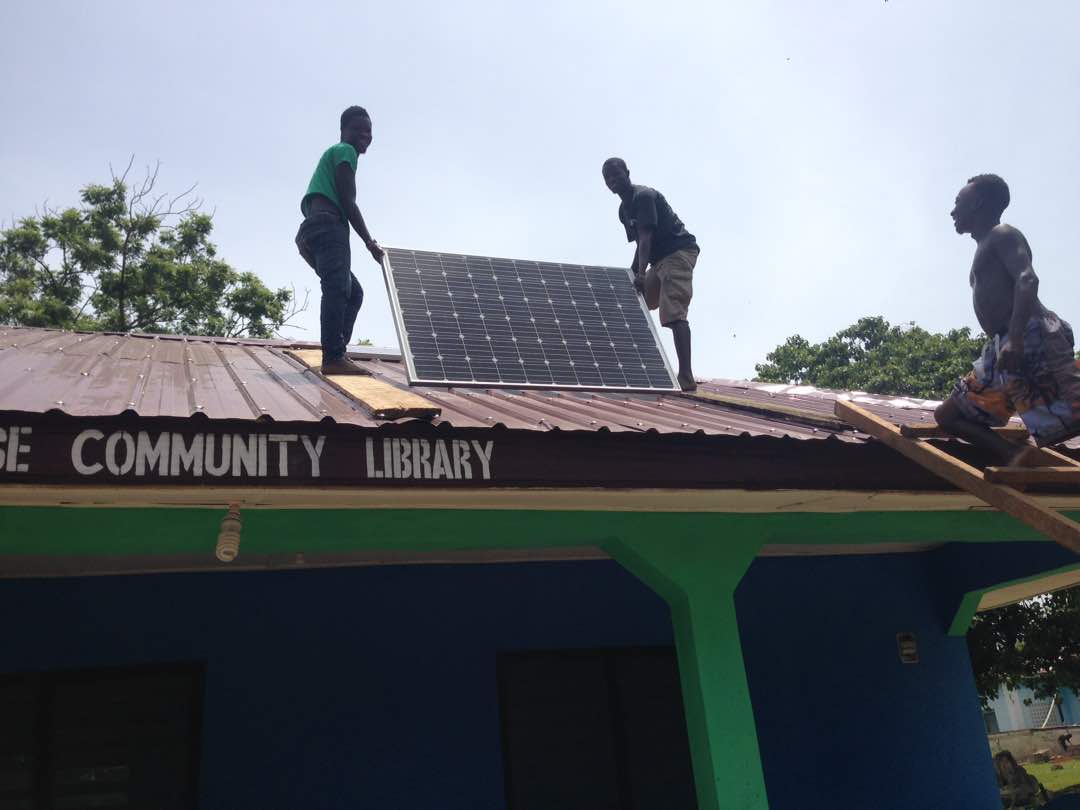
Solar power
Ten of our education Spots are powered by solar photovoltaic (PV) systems. This has ensured a reliable power supply for night studies, reduced operational costs in utility bills and demonstrates our commitment to reducing our carbon footprints.
Environmental sustainability is at the core of our model. With Ghana’s grid emission factor of 0.3 kg Co2/kWh, every unit of energy consumed at each of our solar-powered libraries saves 300 grams of co2 that would have been emitted into the atmosphere.
Also, in line with our community-led model, communities bear the ongoing cost of running their libraries. Providing them with solar power, therefore, helps to offset the cost of utility bills, making our projects economically sustainable.

Solar power also comes handy given the intermittent nature of power supply from the national grid; providing reliable power for lighting to enable students to study in the library at night.
